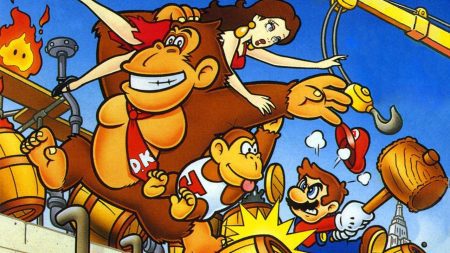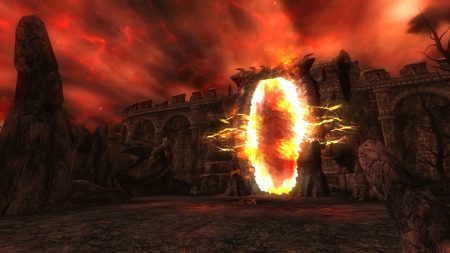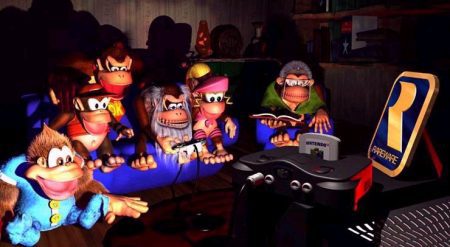The Best Games in a Tough Year
While the COVID-19 pandemic is by no means over (please get vaccinated y’all), things seem to be approaching some semblance of normal, at least here in my home city of New York. People are walking outside without masks, more and more businesses are having employees return to the office, vacations and indoor weddings appear to be making a comeback, and it’s no longer weird to see people dining inside of restaurants. Things have normalized marginally to the point where I feel more comfortable doing things I haven’t done in a year and a half, like working out inside a gym and going to a movie theater.
I’m still try to exercise caution (you won’t see me at an indoor concert or on an airplane anytime soon), and I want to reiterate that we are definitely not out of the woods yet. New variants could theoretically put us all back indoors at any time, and far too many people across the globe still don’t have access to life-saving vaccines. Things are getting better, but that doesn’t mean everything is fine.
That said, I felt this would be a good time to give a shout out to the video games that helped me get through the last year and change. So I constructed a list of the ten best backlog games I played in quarantine as a way to properly remember a 15-month period where I spent an absurd amount of time indoors.
The list comes with the following parameters:
-Games that came out in 2020 or 2021 don’t count (we have other lists for that)
-Anything I started before quarantine and finished later doesn’t qualify (e.g., Ratchet & Clank (2016))
-I won’t list any games I’d finished before and wanted to revisit (e.g., Super Mario 64)
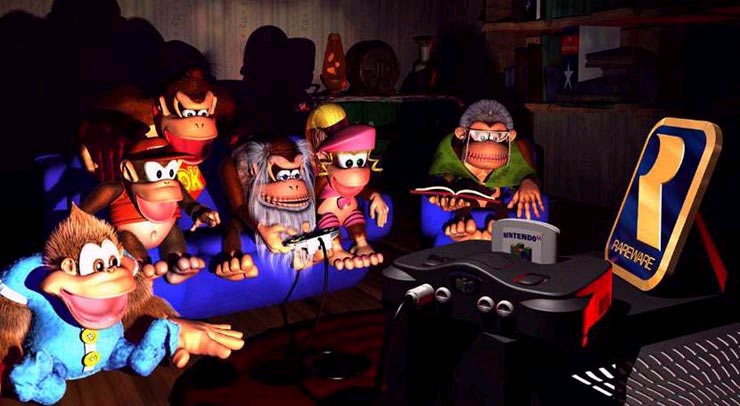
10. Donkey Kong Country 3: Dixie Kong’s Double Trouble!
My love for the Donkey Kong Country franchise is no secret, though the third in the franchise (which is also one of the last notable Super Nintendo titles) hadn’t ever clicked with me. I played the first couple of levels as a kid on a rental copy from Blockbuster, but I felt the game lacked the ingenuity and charm of its two superior predecessors. Once it reappeared on Nintendo Switch Online, however, I figured I would give it another chance.
While I would still rank it below the other main DKC games, DKC 3 has a lot going for it. It has some of the sharpest visuals on the SNES, some levels are excellently designed, and it may have the best approach to boss battles of any game in the series. I also really admire its level select structure, where the player can interact with the overworld in far more ways than they can in DKC 1 and DKC 2.
DKC3 is definitely a disappointment when compared to the rest of the franchise, but it’s still a really good game that holds up to this day. Sure, the soundtrack isn’t that good, the setting is largely boring, and Kiddy Kong just sucks (seriously, I NEVER chose to play as him over Dixie if I had the choice), but the game overall still has the proper feel of a DKC game, and that alone makes it worthwhile.
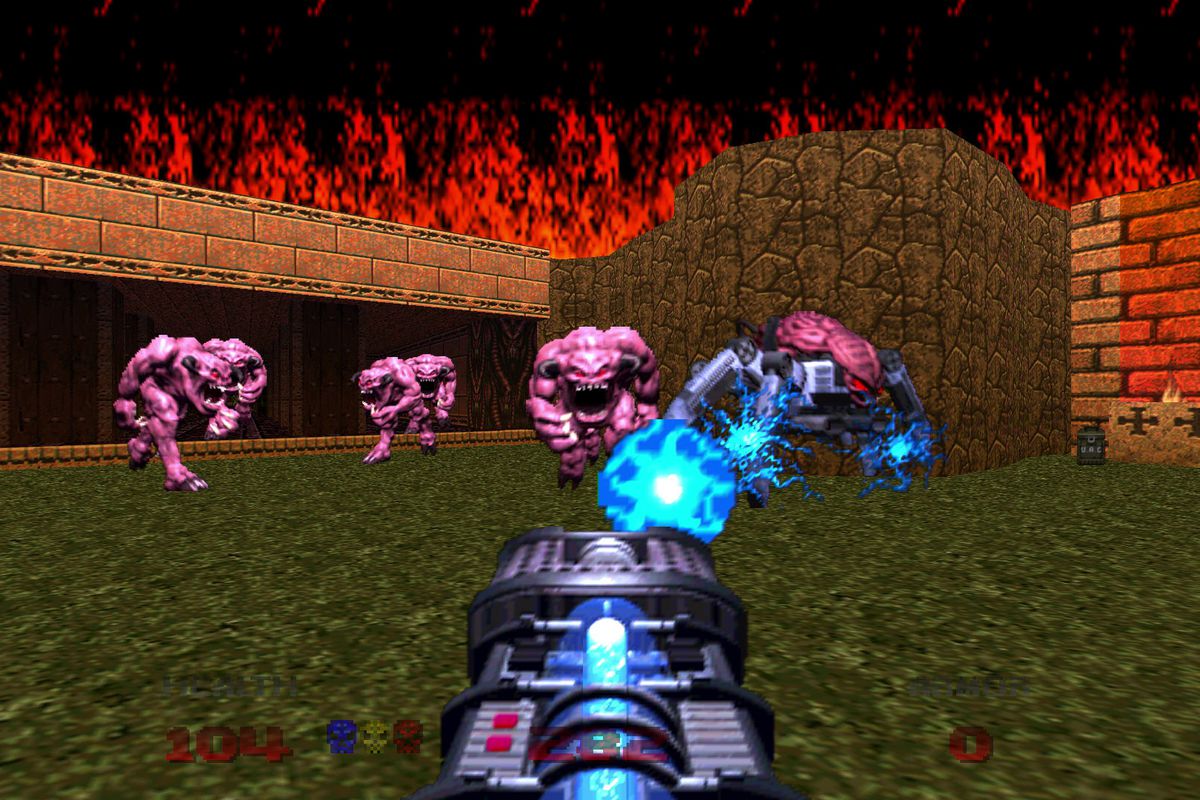
9. Doom 64
I played through several of the old Doom games for the first time earlier this year, and you know what? Doom 64, largely viewed as the odd man out in the franchise, is easily my favorite. The 2D weapon design contrasts beautifully with the early 3D-rendered environments, the labyrinthine level design made for some of the best “tough but fair” gameplay experiences, and the frenetic pace of the combat was made all the better by the more streamlined UI.
Certain genres, in my view, tend to progress in quality in a linear fashion. First-person shooters now are just generally better than they used to be, thanks to crisper controls, better enemy AI, and larger spaces. That said, Doom 64 really stood out to me as a game that, despite some of its time-locked jankiness, remains as engaging and fun as any modern shooter. The more recent Doom games certainly up the ante in so many ways, but the old-school charm of Doom 64 is hard to beat.
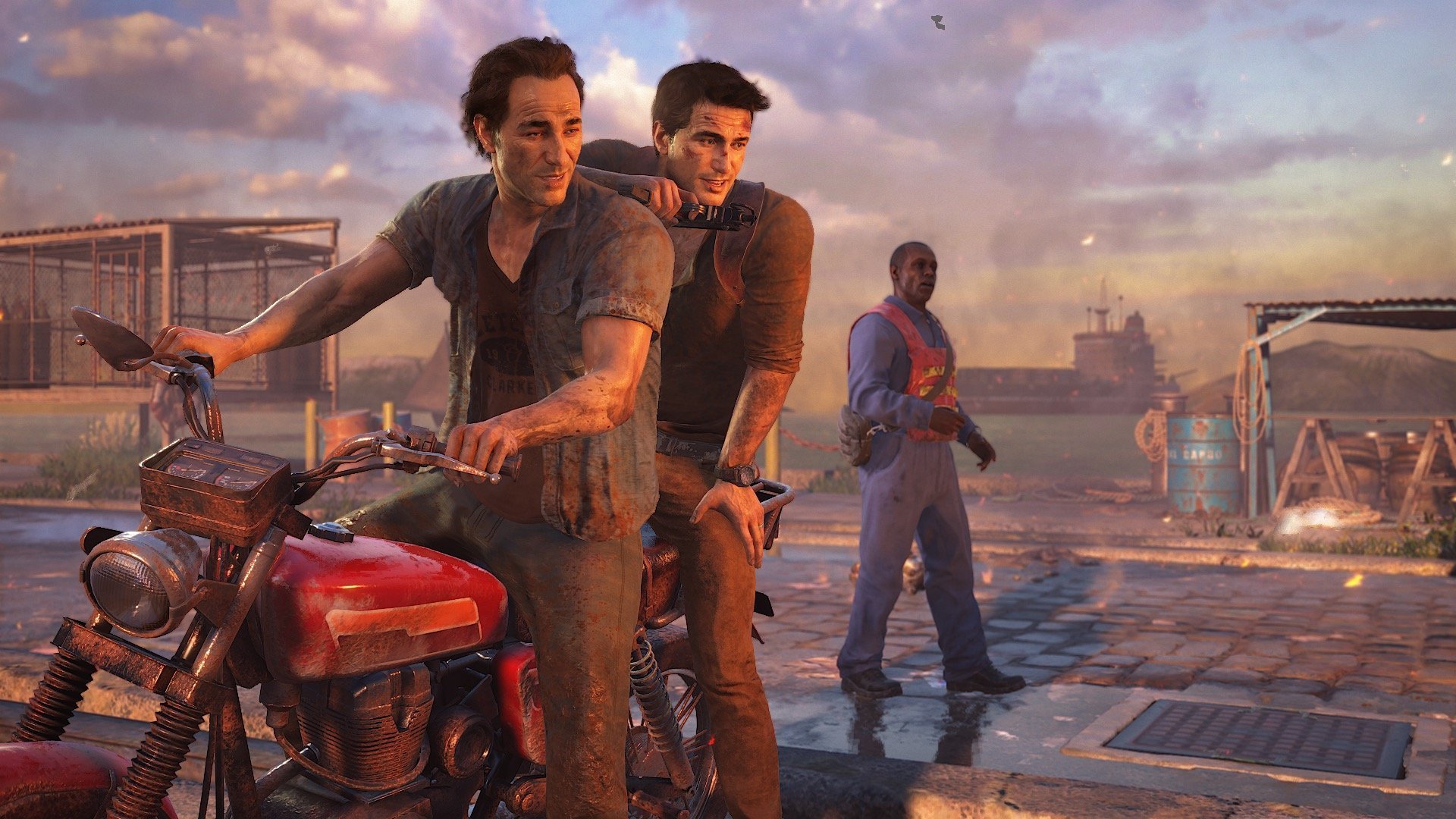
8. Uncharted 4: A Thief’s End
I played through the entire Uncharted franchise for the first time in a two-month period early in the pandemic. For the most part, I was underwhelmed. They all seem to embody a sense of “you had to be there,” since the explosive action sequences and cinematic qualities of the early Uncharted entries aren’t quite as flashy and impressive as they were a decade ago. Pair that with clunky shooting mechanics and problematic storytelling and you have a series of titles that just don’t hold up all that well.
Uncharted 4, however, resonated deeply with me for a number of reasons. First and foremost, virtually every component of the gameplay experience saw improvements in A Thief’s End, from the upgraded combat mechanics to the improved platforming sequences, made all the better by the addition of a grappling hook. More importantly, Uncharted 4’s story structure landed with me far better than that of any of its predecessors. The meta-narrative of the Drake brothers’ conflict with Rafe mirroring that of the very pirates whose treasure they’re seeking made for a remarkably compelling experience, and one that nearly justifies the existence of the whole franchise. I don’t always love Naughty Dog’s approach to game design, but Uncharted 4 makes a very strong case in support of it.
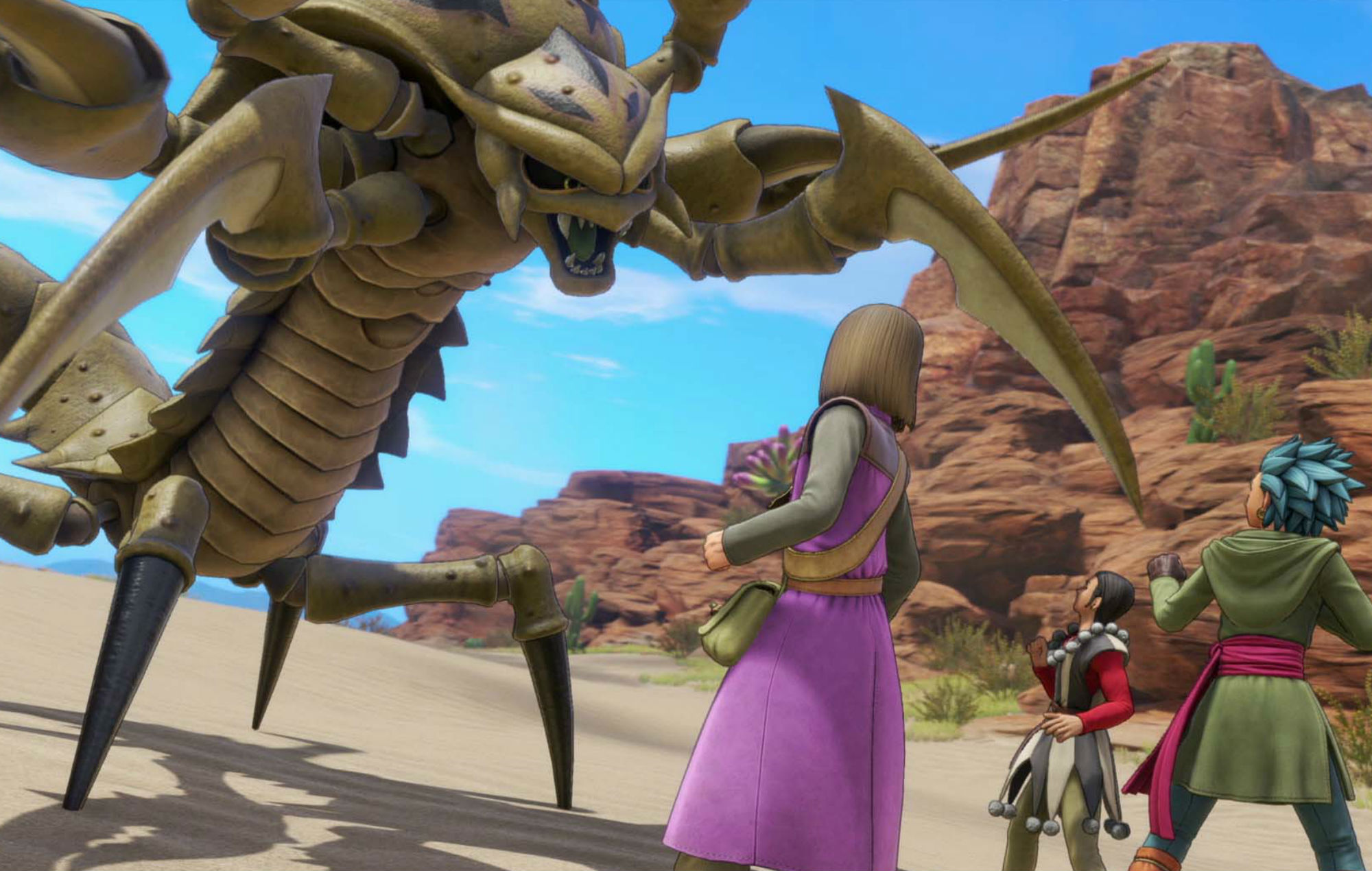
7. Dragon Quest XI S: Echoes of an Elusive Age
Japanese RPGs don’t always sit well with me, since too many of them are bloated, overbearing experiences that bog the player down with unnecessary mechanical layers and a broader plot badly in need of editing. Dragon Quest XI, however, is an all-around delightful experience whose streamlined mechanics pair nicely with its ever-so-charming presentation.
While DQXI is by no means a rudimentary experience, its approach to story progression and battle systems present the player with just the right amount of challenge that never gets in the way of the basic enjoyment found in simply existing in such a vibrant and inviting world. The whole experience may be a bit long for my taste, but DQXI is a fantastic RPG with great character writing, intense boss battles, and truly pleasant all-around vibes. Much like Chrono Trigger a couple of years ago, this game reminded me to be more open-minded about genres I typically dislike.

6. Dishonored
Dishonored dares the player to think critically and carefully about every single move they make and challenges the notion of “linear” storytelling. Sure, each level in the game involves the player reaching a predetermined endpoint, but how they achieve that goal (and if they choose to achieve it differently than initially stated) is entirely up to them. Do they go for a chaotic run full of intense combat sequences and hidden corpses? Do they see how far they can go without being noticed at all? Do they try to finish the job as quickly as possible or explore every inch of the level, delving deep into the title’s complex lore? There is no wrong path in Dishonored, only the one you choose.
While I bristle somewhat at the binary morality system that determines what kind of ending the player sees, Dishonored’s approach to continuous player choice and narrative progression makes for an enthralling experience that’s almost too impressive to truly believe. And nearly a decade after its initial release, the game looks and feels like it could have come out yesterday.
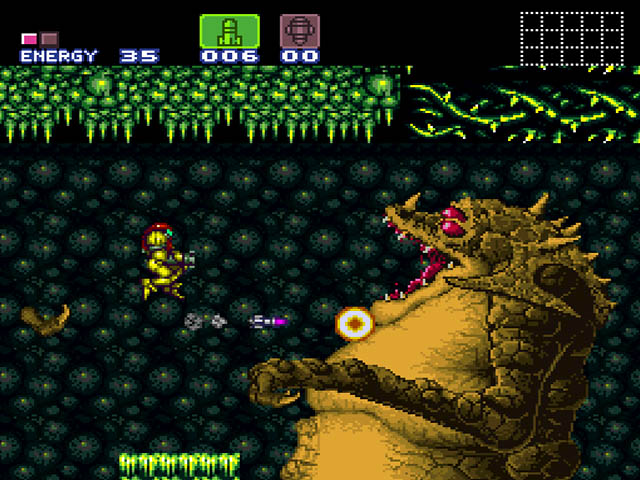
5. Super Metroid
Admittedly, it has taken me multiple attempts throughout my lifetime to finish (and truly appreciate) Super Metroid. I always struggled with the game’s insistence on backtracking and repetition, as I’d always get stuck somewhere and be so lost and frustrated that plowing through just felt like work.
This time around, though, I managed to break through that wall and learn to embrace the oppressive, mysterious world of Zebes. Everything about Super Metroid’s level design—secret passageways, non-linear progression, enemy placement, and natural hazards—establishes a constant sense of dread (haha) but also curiosity, as once the game finally clicked for me, I couldn’t wait to see what else lay ahead. Finally, I understand why Super Metroid is viewed as one of the greatest games of all time, and I can’t say I fully disagree.
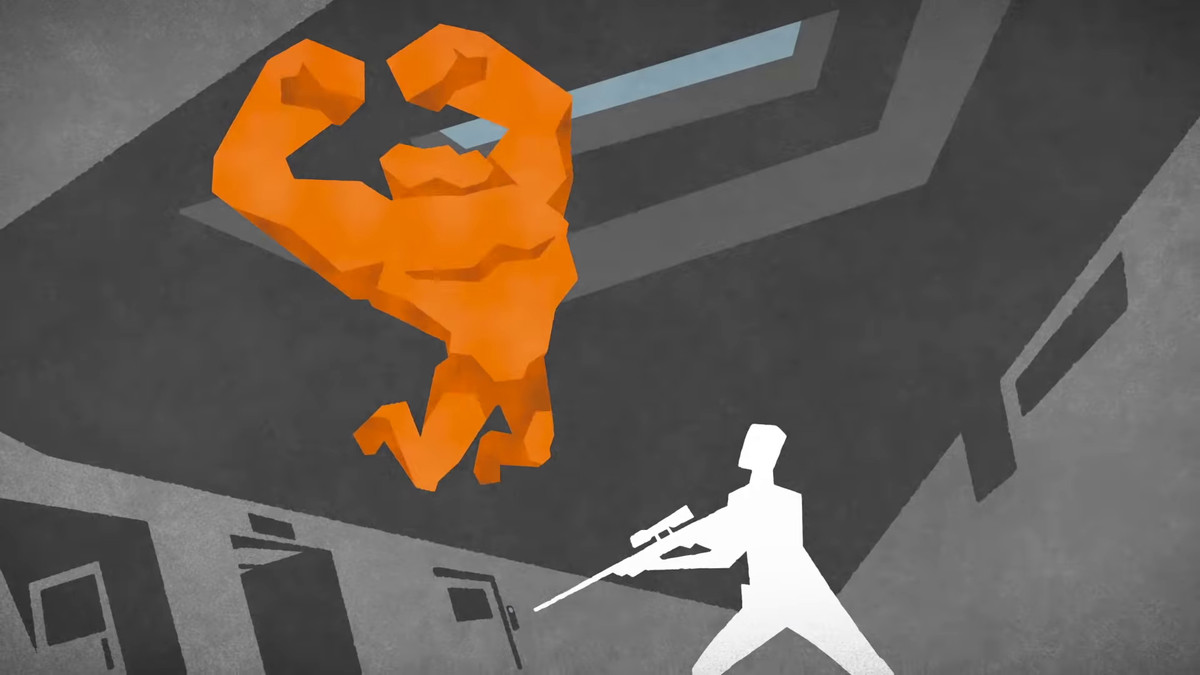
4. Ape Out
Indie delight Ape Out is a game so singularly expressive and tactile that it’s difficult to thoughtfully explain why it’s just so damn good without telling you to just play it. Its minimalist art style meshes beautifully with the thunderous drum-focused soundtrack, yet what makes the experience so incredible is how its deceptively deep gameplay and labyrinthine level design create a simultaneous sense of panic and power. At all times, the ape is in danger, yet so is literally everyone else in sight. Ape Out must be played to be believed, yet it only took me a matter of minutes with the controller to make me a believer.
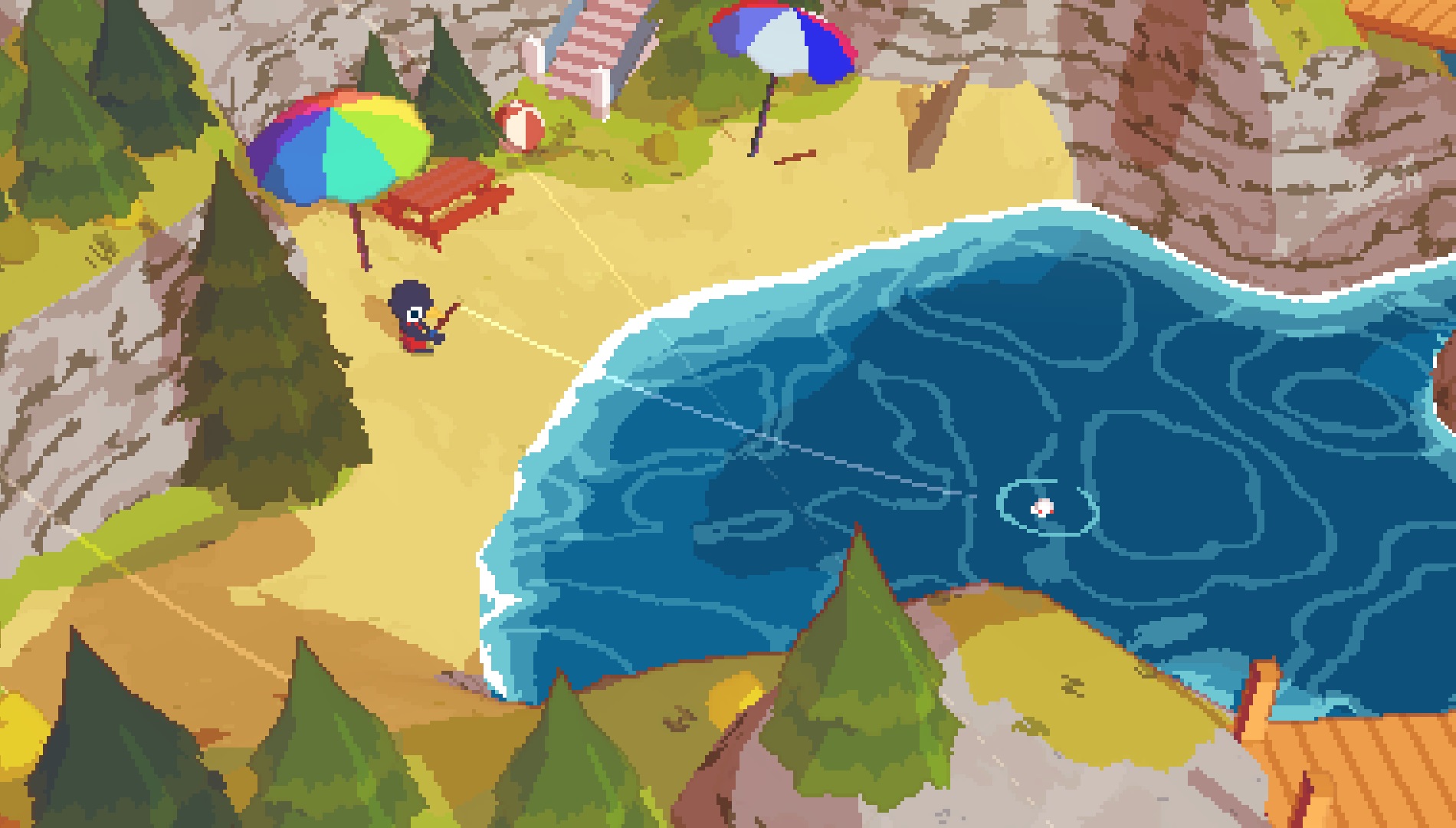
3. A Short Hike
What works so wonderfully about A Short Hike is how it built an environment that serves as a playground but not a theme park. Its overarching narrative is incredibly touching (and fairly relatable), though what makes it work so well is that each step toward achieving the plot’s climax involves interacting with the world and its people in a genuine manner.
Unlike your typical Grand Theft Auto or Assassin’s Creed—where most passersby are puppets whose sole existence is to make the world seem “real”—A Short Hike allows the player to take part in typical summer fun, like foot races, volleyball, rock climbing, and fishing with other adorable animals. Sometimes these actions help push the narrative forward, but other times they exist just to exist. Everything and everyone belongs exactly where they are, and the player’s engagement in such activities is largely determined by their own volition; you’re never forced to do anything, therefore you do whatever your heart wants.
A Short Hike presents a cartoonish world with anthropomorphic inhabitants and a reliance on gaming clichés (including stamina limits and double jumps), yet it all feels authentic and palpable.

2. Shovel Knight: Treasure Trove
Every single Shovel Knight campaign drips with joy and delight. At first, I viewed Shovel Knight as a weapon of nostalgia, something that tries to emulate past experiences without presenting anything novel. What I found after years of ignoring these wonderful games floored me. Every single campaign—and there are four—is defined by fluid controls, a simple yet compelling narrative, expert level design, and a divine art direction, though each one also feels distinct because of its respective approach to character study. Even though Shovel Knight, King Knight, Specter Knight, and Plague Knight all move through their own plots in completely different ways, each story comes together as a single, tight narrative with a surprising amount of depth and charm.
Obviously, the folks at Yacht Club Games were trying to build something that reminds people of classic 8-bit titles like Mega Man and Castlevania. But Shovel Knight actually accomplishes something greater: It has established a brand new franchise that has an identity of its own. From the way it approaches different gameplay mechanics for each knight to the way it asks the player to walk a mile in another’s shoes, Shovel Knight: Treasure Trove amazes the player at nearly every turn.

1. The Elder Scrolls IV: Oblivion
Oblivion serves as a great reminder that even games with mechanics that clearly don’t hold up can still include qualities that do. In my dozens of hours playing the fourth Elder Scrolls game for the first time earlier this year, I was too amazed by the wonders of Cyrodiil and all the bizarre curiosities it holds to be bothered by the bland swordplay and janky enemy AI. As I embarked on quests of my own choosing, I truly felt that the story I experienced in Oblivion was my own—one marked by thievery, heroism, mystery, wonder, and one incredible vampire scare.
Sure, more modern RPGs have cleaned up a lot of what makes this early Xbox 360 game look dated, but the parts of the endeavor that earned near universal claim 15 years ago remain enchanting to this very day.
Honorable mentions: Uncharted: The Lost Legacy, Journey, Shadow of the Colossus
How much of your backlog did you work through during the pandemic? Let us know in the comments!
Sam has been playing video games since his earliest years and has been writing about them since 2016. He’s a big fan of Nintendo games and complaining about The Last of Us Part II. You either agree wholeheartedly with his opinions or despise them. There is no in between.
A lifelong New Yorker, Sam views gaming as far more than a silly little pastime, and hopes though critical analysis and in-depth reviews to better understand the medium's artistic merit.
Twitter: @sam_martinelli.








